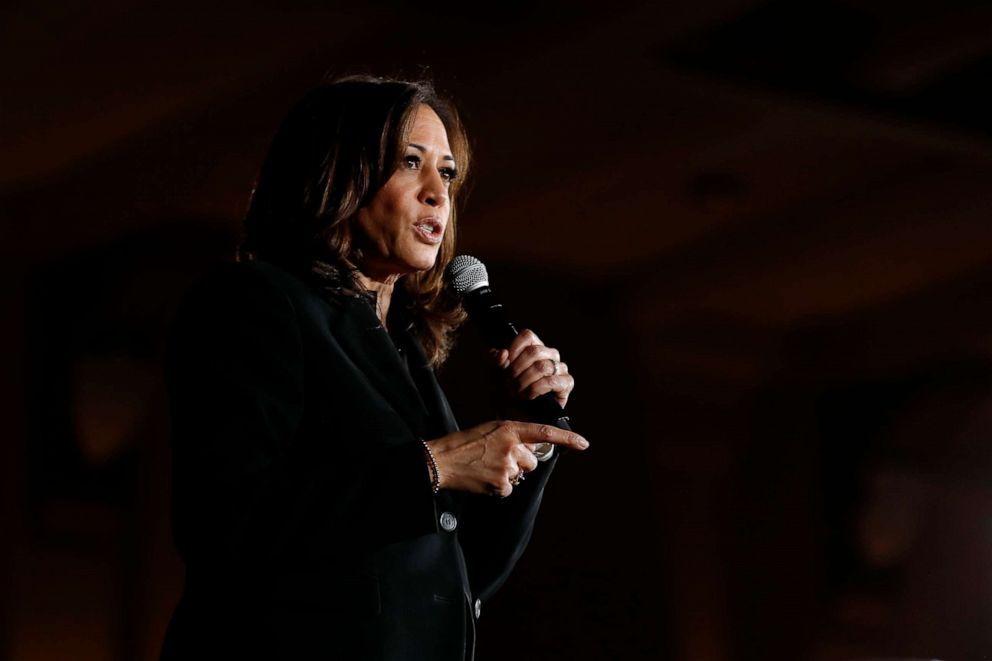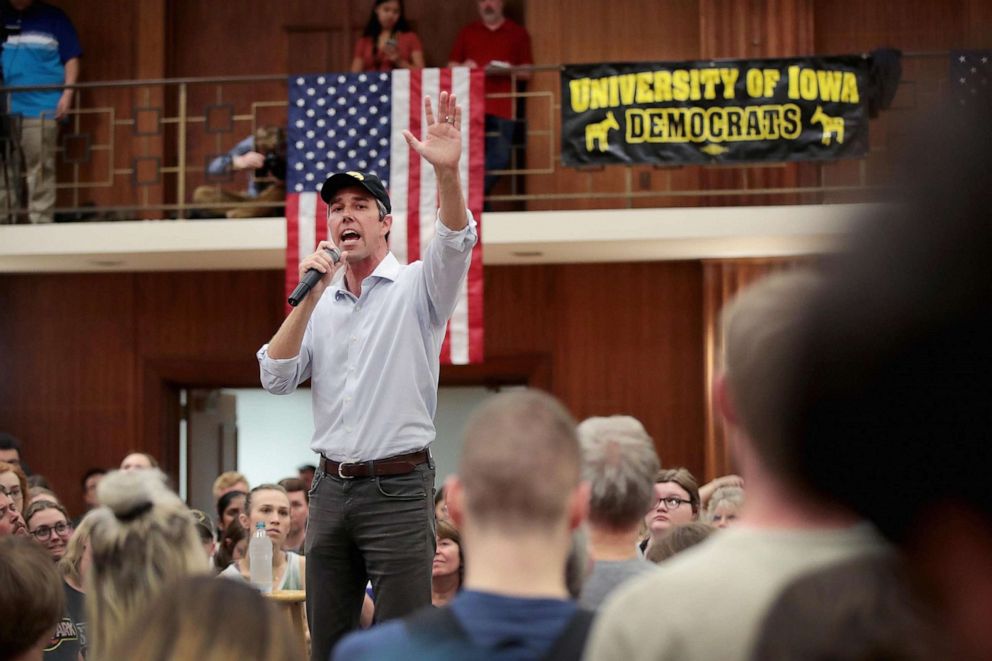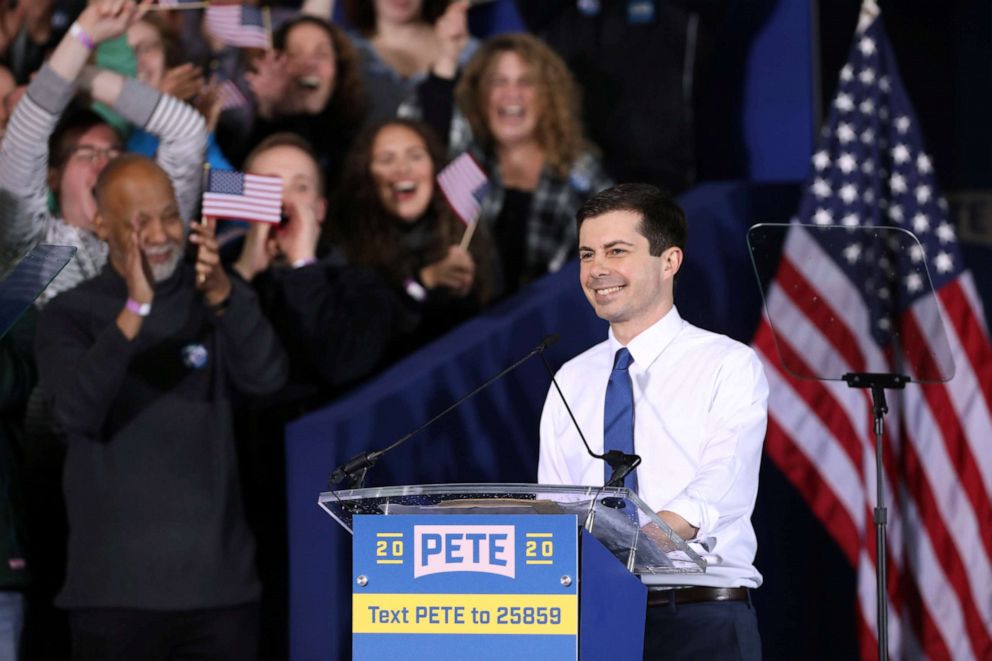The Note: Show us the money: Democrats challenge the president on tax day
Several 2020 candidates have voluntarily released their tax returns.
The TAKE with MaryAlice Parks
It's tax day, and Democratic presidential candidates continue to draw a sharp contrast with President Donald Trump by voluntarily releasing their tax returns, as most presidents and presidential candidates have done previously.
Over the weekend, Sen. Kamala Harris released 15 years' worth of recent tax returns, which showed that she and her husband are wealthy. The couple made nearly $2 million last year, largely through investments and her husband’s law firm partnership.

Sens. Elizabeth Warren, Amy Klobuchar, and Kirsten Gillibrand all have released documentation from recent years as well, citing their Senate incomes and money earned from book sales. Gov. Jay Inslee also released 12 years of tax returns last month and personally challenged the president to do the same.
By submitting themselves to public scrutiny, these candidates are, in effect, saying they have nothing to hide and are willing to take detailed questions about their personal finances. Voters can then decide if they care how a particular candidate earned or spent money, and candidates can point to other motivations for their work.
Sen. Bernie Sanders notably did not release his tax returns during the 2016 presidential campaign, but he has promised to do so Monday.
The RUNDOWN with John Verhovek
The first fundraising quarter of the Democratic presidential primary has had its share of eye-openers.
The mayor of a town of just over 100,000 people out-raised four sitting senators.
A former three-term congressman-turned-Senate candidate raked in over $6 million in a single day.

A senator from Vermont claimed to have more than 1 million individual donations to his campaign.
Monday's deadline for candidates to submit final first-quarter numbers to the Federal Election Commission will provide more clarity on a crowded field still waiting for a handful of candidates (including, perhaps, a certain former vice president) to enter the race.
The numbers don't tell the whole story, but they tell the beginnings of a race that will be defined as much by its uncertainty as it will be by the fundamentals of name-recognition and party connections.
Judging from the race's initial surprises, by the time the next deadline rolls around, expect just as many questions to arise.
The TIP with Zohreen Adamjee
South Bend, Indiana, Mayor Pete Buttigieg, who unexpectedly rose to fame in recent weeks, made his presidential run official Sunday. But signs of his quick rise seemed apparent when a plan B to move the launch indoors away from rain ... showed signs of major holes.
Hours before the rally, crews scrambled to set up a tent under an area of Studebaker Building 84, where heavy rain slipped through cracks. The crew also draped the podium and two teleprompters with plastic. And with no heating inside, near-freezing temperatures seeped into the former car factory.

When asked about the scramble, his campaign aides stressed the move was a last-minute one, and they were not a heavily produced campaign like others.
Still, it's a problem some campaigns may wish they had: former underdog status facing newfound stardom.
THE PLAYLIST
ABC News' "Start Here" podcast. Monday morning’s episode features ABC News White House Correspondent Tara Palmeri, who explains the Trump administration’s back and forth on a proposal to bus migrants from the border to sanctuary cities. Then ABC News Senior National Correspondent Matt Gutman checks in from South Bend, Indiana, as Mayor Pete Buttigieg officially launches his presidential campaign. http://apple.co/2HPocUL
WHAT YOU NEED TO KNOW TODAY
Download the ABC News app and select "The Note" as an item of interest to receive the sharpest political analysis every week day.




